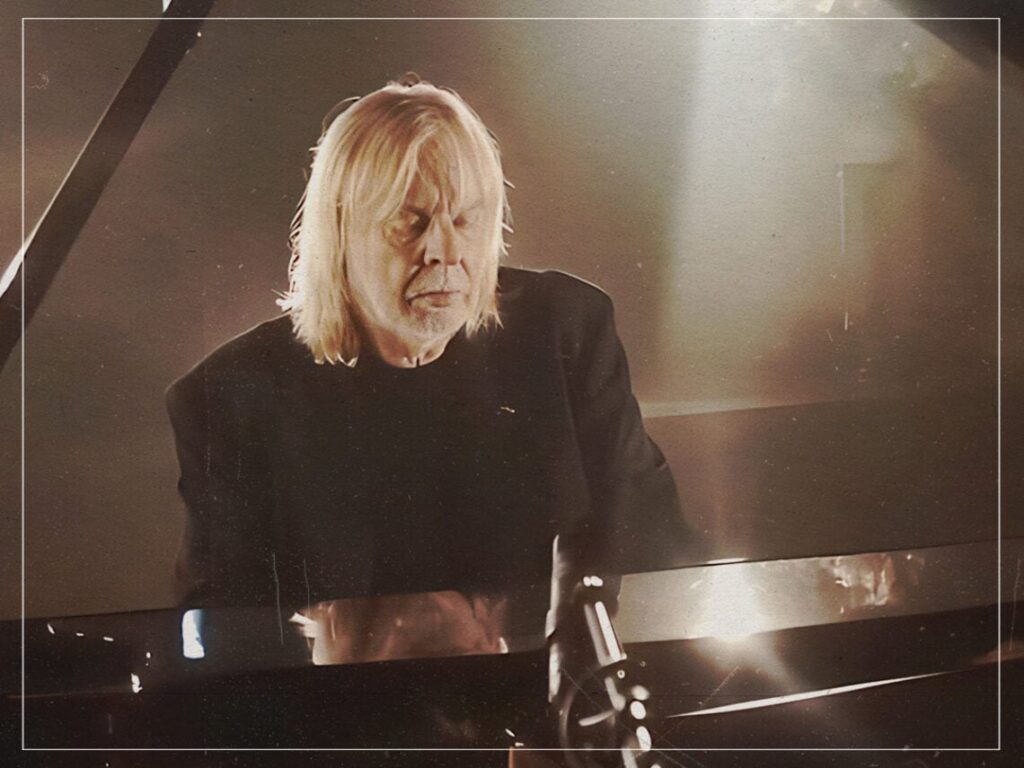The song that made Rick Wakeman an honourary member of Black Sabbath
 Posted On
Posted On
(Credits: Far Out / YouTube Still)
As the 1960s turned a corner, Black Sabbath was about to be considered the litmus test for heavy metal. Most people can only hope to put together a sludgy riff that speaks to that primal urge in all of us, but as soon as Tony Iommi stepped on his fuzz pedal, his interpolation of blues licks became the first seed of what metal would become. Although the group was still fairly tight-knit when putting together songs for Sabbath Bloody Sabbath, they got some help from a progressive rock giant when Rick Wakeman of Yes sat behind the keyboards.
But don’t be alarmed if a sentence involving Black Sabbath and keyboards triggers some alarm bells. Most of Sabbath’s greatest licks were always kept firmly intact, but when they decided to break out a piano on one of their odd tunes, it was about switching things up rather than reinventing themselves with every track.
Never forget that their primary inspiration was The Beatles throughout their career, and that normally meant stretching the boundaries of what they could do. While ‘Changes’ worked as a decent palette cleanser in between all the heaviness, ‘Sabbra Cadabra’ was the kind of ominous that never quite sounded right whenever Iommi tried to play it.
Granted, Iommi never claimed to be the best pianist in the world, and judging by how ‘Changes’ sounded, it was clear that he was far from well-versed on every part of the instrument. But when they decided to give it a rest by going to a pub, having Rick Wakeman at their disposal was one of the best blessings they could have asked for.
Aside from being known as the kind of musician who can put together three different layers of kickass when he wanted, Wakeman was still a veteran of the session scene. Before he had even joined Yes, his work on David Bowie’s Hunky Dory album showed that he at least knew whatever a track needed, but no one could have expected him to go full medieval on the final tune.
As Geezer Butler recalled in Metal Evolution, the whole thing came together almost by a happy accident, saying, “We tried to work out the keyboard part for ages and nobody could get it right. We got talking to Rick and we were asking him his advice. He came into the studio and said, ‘You mean like this?’. And we said, ‘YES’, so he came in and did all the keyboard parts.”
Since the rest of Sabbath Bloody Sabbath is already steeped in Iommi’s thundering riffs, hearing Wakeman take the reins for a little while is far more ominous than it sounds on paper. Listening through the track, the keyboard lines feel like being in the midst of an abandoned castle that’s surely overrun with spirits of the past, with each arpeggio serving as another lost soul creeping up on you.
Wakeman even got along great with the rest of the group, to the point where they hired his son, Adam, to play all of the keyboard lines on their reunion tours. Most metalheads can get very sniffy when one of their heroes walks outside of their comfort zone, but ‘Sabbra Cadabra’ is proof that just because the guitars are toned down doesn’t mean it gets any less heavy.
[embedded content]
Related Topics


